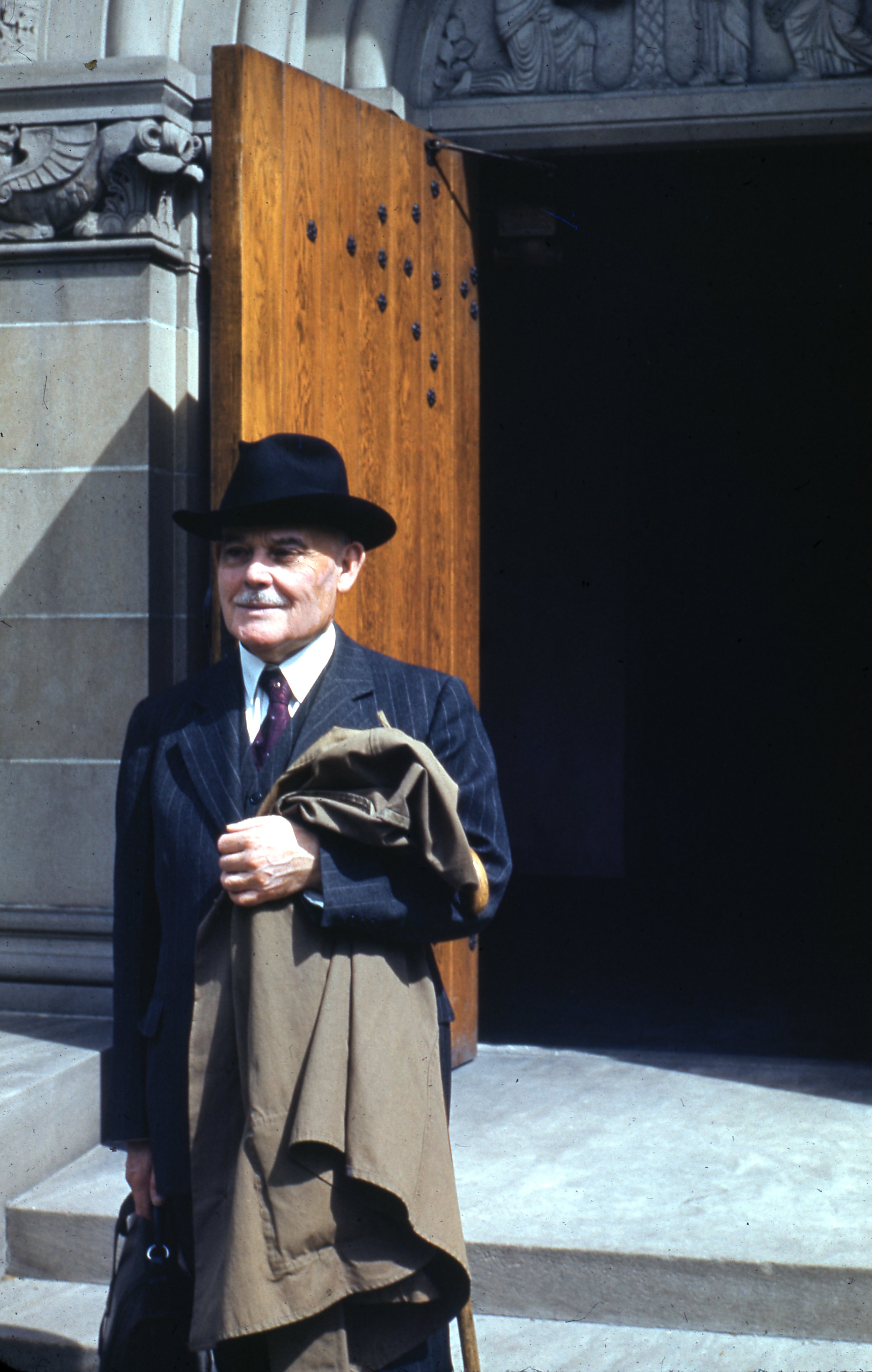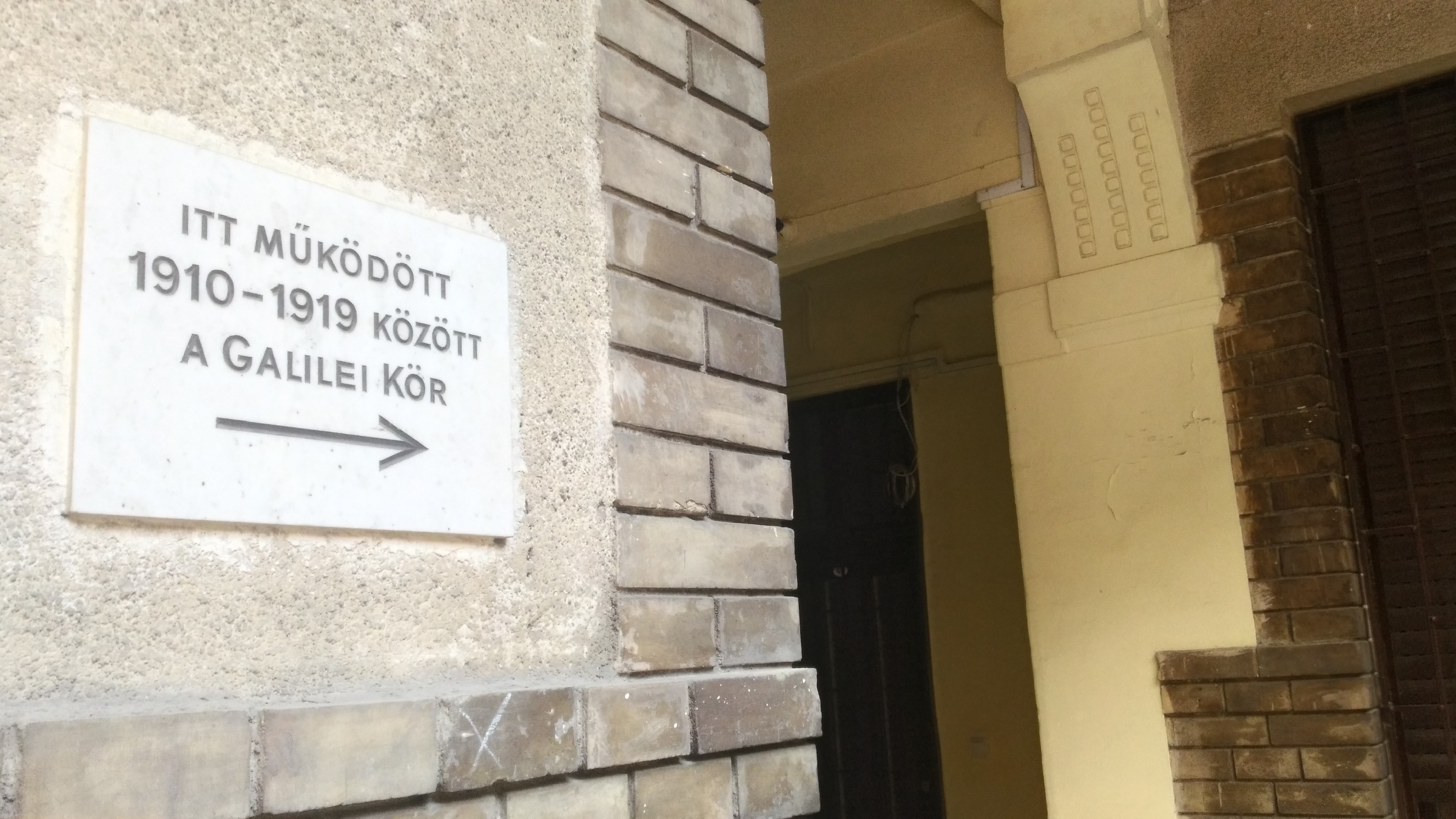|
Ideology And Utopia
Karl Mannheim (born Károly Manheim, 27 March 1893 – 9 January 1947) was an influential Hungarian sociologist during the first half of the 20th century. He is a key figure in classical sociology, as well as one of the founders of the sociology of knowledge. Mannheim is best known for his book ''Ideology and Utopia'' (1929/1936), in which he distinguishes between partial and total ideologies, the latter representing comprehensive worldviews distinctive to particular social groups, and also between ideologies that provide outdated support for existing social arrangements, and utopias, which look to the future and threaten to transform a society. Biography Childhood and education Karl Mannheim was born 27 March 1893 in Budapest, to a Hungarian father, a textile merchant, and German mother, both of Jewish descent. His early education was in that city, he studied philosophy and literature at the University of Budapest, though he also went to Berlin (where he studied with ... [...More Info...] [...Related Items...] OR: [Wikipedia] [Google] [Baidu] |
Budapest
Budapest (, ; ) is the capital and most populous city of Hungary. It is the ninth-largest city in the European Union by population within city limits and the second-largest city on the Danube river; the city has an estimated population of 1,752,286 over a land area of about . Budapest, which is both a city and county, forms the centre of the Budapest metropolitan area, which has an area of and a population of 3,303,786; it is a primate city, constituting 33% of the population of Hungary. The history of Budapest began when an early Celtic settlement transformed into the Roman town of Aquincum, the capital of Lower Pannonia. The Hungarians arrived in the territory in the late 9th century, but the area was pillaged by the Mongols in 1241–42. Re-established Buda became one of the centres of Renaissance humanist culture by the 15th century. The Battle of Mohács, in 1526, was followed by nearly 150 years of Ottoman rule. After the reconquest of Buda in 1686, the ... [...More Info...] [...Related Items...] OR: [Wikipedia] [Google] [Baidu] |
Ideologies
An ideology is a set of beliefs or philosophies attributed to a person or group of persons, especially those held for reasons that are not purely epistemic, in which "practical elements are as prominent as theoretical ones." Formerly applied primarily to economic, political, or religious theories and policies, in a tradition going back to Karl Marx and Friedrich Engels, more recent use the term as mainly condemnatory. The term was coined by Antoine Destutt de Tracy, a French Enlightenment aristocrat and philosopher, who conceived it in 1796 as the "science of ideas" to develop a rational system of ideas to oppose the irrational impulses of the mob. In political science, the term is used in a descriptive sense to refer to political belief systems. Etymology and history The term ''ideology'' originates from French ''idéologie'', itself deriving from combining (; close to the Lockean sense of ''idea'') and '' -logíā'' (). The term ideology, and the system of ideas associ ... [...More Info...] [...Related Items...] OR: [Wikipedia] [Google] [Baidu] |
Alfred Weber
Alfred Weber (; 30 July 1868 – 2 May 1958) was a German economist, geographer, sociologist and theoretician of culture whose work was influential in the development of modern economic geography. Life Alfred Weber, younger brother of the well-known sociologist Max Weber, was born in Erfurt and raised in Charlottenburg. From 1907 to 1933, he was a professor at the University of Heidelberg. Weber started his carrier as a lawyer and worked as a sociologist and cultural philosopher. Work Weber supported reintroducing theory and causal models to the field of economics, in addition to using historical analysis. In this field, his achievements involve work on early models of industrial location. He lived during the period when sociology became a separate field of science. Though his theory on 'Industrial Location' was strictly economic during his time it is widely studied in the field of geography now, mostly as a theoretical concept in the subdomain of economic geography. W ... [...More Info...] [...Related Items...] OR: [Wikipedia] [Google] [Baidu] |
Hungarian Soviet Republic
The Socialist Federative Republic of Councils in Hungary ( hu, Magyarországi Szocialista Szövetséges Tanácsköztársaság) (due to an early mistranslation, it became widely known as the Hungarian Soviet Republic in English-language sources ( hu, Magyar Szovjet-köztársaság)), literally the Republic of Councils in Hungary ( hu, Magyarországi Tanácsköztársaság) was a short-lived Communist state that existed from 21 March 1919 to 1 August 1919 (133 days), succeeding the First Hungarian Republic. The Hungarian Soviet Republic was a small communist rump state. When the Republic of Councils in Hungary was established, it controlled only approximately 23% of the Hungary's historic territory. The head of government was Sándor Garbai, but the influence of the foreign minister Béla Kun from the Hungarian Communist Party was much stronger. Unable to reach an agreement with the Triple Entente, which maintained an economic blockade in Hungary, tormented by neighboring countries fo ... [...More Info...] [...Related Items...] OR: [Wikipedia] [Google] [Baidu] |
Sonntagskreis
The Sonntagskreis ( hu, Vasárnapi Kör, italic=no, "Sunday Circle") was an intellectual discussion group in Budapest, Hungary, between 1915 and 1918. The main focus of the group was on the relationship between ideas and the social and historical context of those ideas, a line of thought that led towards the later concepts of "social history of art" and "sociology of knowledge". The Sonntagskreis group The Sonntagskreis was founded in the autumn of 1915 by Béla Balázs, Lajos Fülep, Arnold Hauser, György Lukács, and Károly (Karl) Mannheim; in December of that year Balázs noted the success of the group in his diary. Others members of the group at various times included Frigyes (Frederick) Antal, Béla Fogarasi, Tibor Gergely, Edit Gyömrői, Edit Hajós, , , Anna Lesznai, , Mihály (Michael) Polányi, László Radványi, Emma Ritoók, Anna Schlamadinger, Ervin Šinko, Vilmos Szilasi, Károly Tolnay (Charles de Tolnay) and János (Johannes) Wilde. Admission ... [...More Info...] [...Related Items...] OR: [Wikipedia] [Google] [Baidu] |
Oszkár Jászi
Oszkár Jászi (born Oszkár Jakobuvits; 2 March 1875 – 13 February 1957), also known in English as Oscar Jászi, was a Hungarian social scientist, historian, and politician. Early life Oszkár Jászi was born in Nagykároly on March 2, 1875. His hometown was, as he put it in his unfinished memoirs, "the county seat of Szatmár, the center of a rich agricultural area, it was a major factor in Hungary's economic, municipal and political life." His father, Ferenc Jászi (1838–1910), was a family physician and (in his son's words) "an honorable, humane freethinker" who had had his family name changed from ''Jakobuvits'' to ''Jászi'' in 1881, a "typical symptom of the very strong and seemingly unqualified drive for assimilation that he and many Jewish contemporaries displayed around that time... This was the family climate that gave rise in the then six-year-old Oszkár to a self-image whereby for a long time thereafter he was simply unwilling to acknowledge his Jewish origins ... [...More Info...] [...Related Items...] OR: [Wikipedia] [Google] [Baidu] |
Michael Polanyi
Michael Polanyi (; hu, Polányi Mihály; 11 March 1891 – 22 February 1976) was a Hungarian-British polymath, who made important theoretical contributions to physical chemistry, economics, and philosophy. He argued that positivism supplies an imperfect account of knowing as no observer is perfectly impartial. His wide-ranging research in physical science included chemical kinetics, x-ray diffraction, and adsorption of gases. He pioneered the theory of fibre diffraction analysis in 1921, and the dislocation theory of plastic deformation of ductile metals and other materials in 1934. He immigrated to Germany, in 1926 becoming a chemistry professor at the Kaiser Wilhelm Institute in Berlin, and then in 1933 to England, becoming first a chemistry professor, and then a social sciences professor at the University of Manchester. Two of his pupils, and his son John Charles Polanyi won Nobel Prizes in Chemistry. In 1944 Polanyi was elected to the Royal Society. The contribution ... [...More Info...] [...Related Items...] OR: [Wikipedia] [Google] [Baidu] |
Karl Polanyi
Karl Paul Polanyi (; hu, Polányi Károly ; 25 October 1886 – 23 April 1964),''Encyclopædia Britannica'' (Chicago: Encyclopædia Britannica Inc. 2003) vol 9. p. 554 was an Austro-Hungarian economic anthropologist and politician, best known for his book '' The Great Transformation,'' which questions the conceptual validity of self-regulating markets. In his writings, Polanyi advances the concept of the Double Movement, which refers to the dialectical process of marketization and push for social protection against that marketization. He argues that market-based societies in modern Europe were not inevitable but historically contingent. Polanyi is remembered best as the originator of substantivism, a cultural version of economics, which emphasizes the way economies are embedded in society and culture. This opinion is counter to mainstream economics but is popular in anthropology, economic history, economic sociology and political science. Polanyi's approach to the ancient ec ... [...More Info...] [...Related Items...] OR: [Wikipedia] [Google] [Baidu] |
Galileo Circle
The Galileo Circle (''Galilei Kör'') was an atheist-materialist student organization that functioned in Budapest between 1908 and 1919. Their center was located at the Anker Köz in Terézváros, Budapest. The circle had several subgroups with four different world views: the radical liberals (they called themselves as "radical democrats"), the Marxists (they called it as "Revolutionary Socialists"), the anarcho-syndicalists and the socialists (social democrats). However they had common goals, which included the protection of free scientific research and thinking at universities, the cultivation of social sciences, the social assistance of poor students, the spread of anti-clericalist and atheist views, the support of anti-nationalism and promoting internationalism, the propagation of anti-alcoholism, the opposition to large estates and the "reorientation of Hungarian social perception". The circle was founded on November 22, 1908. This was in response to the attacks on Gy ... [...More Info...] [...Related Items...] OR: [Wikipedia] [Google] [Baidu] |
University Of Heidelberg
} Heidelberg University, officially the Ruprecht Karl University of Heidelberg, (german: Ruprecht-Karls-Universität Heidelberg; la, Universitas Ruperto Carola Heidelbergensis) is a public research university in Heidelberg, Baden-Württemberg, Germany. Founded in 1386 on instruction of Pope Urban VI, Heidelberg is Germany's oldest university and one of the world's oldest surviving universities; it was the third university established in the Holy Roman Empire. Heidelberg is one of the most prestigious and highly ranked universities in Europe and the world. Heidelberg has been a coeducational institution since 1899. The university consists of twelve faculties and offers degree programmes at undergraduate, graduate and postdoctoral levels in some 100 disciplines. The language of instruction is usually German, while a considerable number of graduate degrees are offered in English as well as some in French. As of 2021, 57 Nobel Prize winners have been affiliated with the city o ... [...More Info...] [...Related Items...] OR: [Wikipedia] [Google] [Baidu] |
First World War
World War I (28 July 1914 11 November 1918), often abbreviated as WWI, was one of the deadliest global conflicts in history. Belligerents included much of Europe, the Russian Empire, the United States, and the Ottoman Empire, with fighting occurring throughout Europe, the Middle East, Africa, the Pacific, and parts of Asia. An estimated 9 million soldiers were killed in combat, plus another 23 million wounded, while 5 million civilians died as a result of military action, hunger, and disease. Millions more died in genocides within the Ottoman Empire and in the 1918 influenza pandemic, which was exacerbated by the movement of combatants during the war. Prior to 1914, the European great powers were divided between the Triple Entente (comprising France, Russia, and Britain) and the Triple Alliance (containing Germany, Austria-Hungary, and Italy). Tensions in the Balkans came to a head on 28 June 1914, following the assassination of Archduke Franz Ferdina ... [...More Info...] [...Related Items...] OR: [Wikipedia] [Google] [Baidu] |




